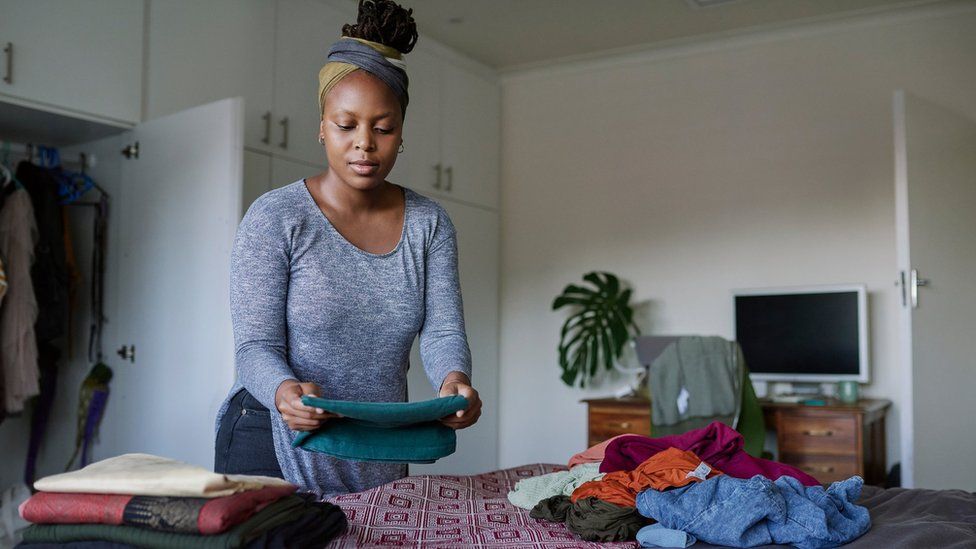
By Mark Easton
Home editor
A clear majority of people in the UK agree household chores should be shared – but women generally do them, an annual survey of public views suggests.
More than three-quarters of respondents to the British Social Attitudes Survey said domestic labour should be split.
Yet two-thirds said women do more than their fair share of washing and ironing. And most said women still do most of the cleaning and cooking.
But ideas on gender roles have changed considerably since the mid-1980s.
Back then, 48% agreed with the statement “a man’s job is to earn money and a woman’s to look after the home.”
In this year’s survey, just 9% agreed.
When those who lived in mixed-sex households were questioned on what actually happens behind closed doors, 63% of women said they did more than their fair share of the housework.
Just 22% of men said they shouldered most of the burden, with 32% admitting they do less than they should.
Social scientists refer to the phenomenon as “second shift”, with women doing a day in their workplace and then shouldering most domestic and childcare duties.
Some men told BBC News housework was more evenly split at home than the survey would let on.
Andy, who did not give his surname, from Hampshire, said cleaning was split equally with his wife as they tended to do it as they go.
“I do all the cooking and take out the rubbish,” he said. “I can’t stand putting the dishwasher on without going around the house and finding every dirty cup and saucer.
“We clean the house as we go and I feel it is an even split – except the toilet, I clean that.”
Other findings from the annual survey, based on 6,638 interviews with adults between September and October last year, include:
- There has been a “near-revolution” in views of some social issues since the first British Social Attitudes Survey in the 1980s, including plummeting opposition to same-sex relationships
- But support for transgender people’s right to change their sex on their birth certificate has fallen from 53% to 30% since 2019
- The number who see it as “very difficult” to move social class has nearly doubled since 2005 to 32%
- There has been a rise in the number of people who think there is “quite a lot” of poverty in the UK – from 52% in 2006 to 69%
Household income
In 1983, when the BSA survey began, the female employment rate for 16-64-year-olds was 54%.
By 2023, this had risen to 72%. And the participation of mothers in the labour market has never been higher.
In contrast, 78% of working-age men had a paid job in 1983 – and now, it is 79%.
In 1989, about half of of respondents said both the man and woman should contribute to the household income.
Now, it is 70% – with support among men and women increasing at a similar rate.
The continued unequal division of labour between men and women is reinforced by both workplace norms and public policy, the survey says
“There remains a chasm between attitudes and practice, with women continuing to take on more domestic labour relative to men,” the authors say.
“Despite some progress, the UK is therefore a long way from seeing a complete gender-role revolution in the household.”
And the survey suggests Britain has yet to tackle this “final frontier” of gender equality.
How is the housework split in your home? You can get in touch by emailing haveyoursay@bbc.co.uk.
Please include a contact number if you are willing to speak to a BBC journalist. You can also get in touch in the following ways:
If you are reading this page and can’t see the form you will need to visit the mobile version of the BBC website to submit your question or comment or you can email us at HaveYourSay@bbc.co.uk. Please include your name, age and location with any submission.








